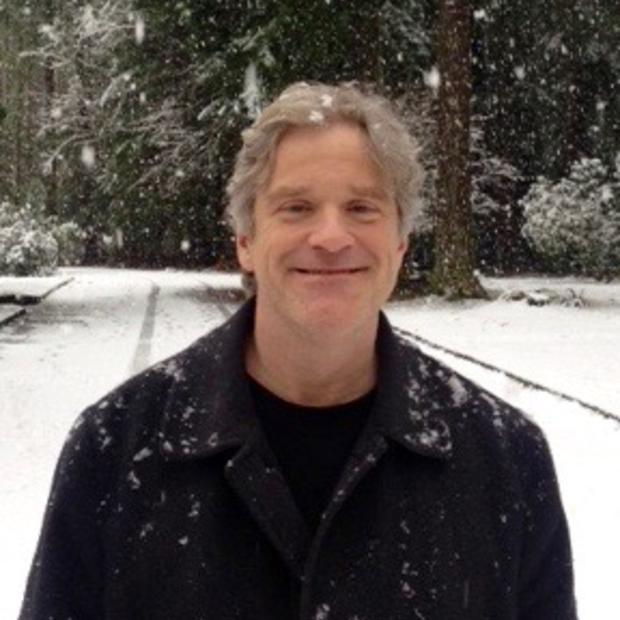"We have nothing to fear from the Palmetto State." Was this the self-contented mantra swilling in Abraham Lincoln's mind on April 12, 1861, when Gen. P.G.T. Beauregard attacked Fort Sumter? Lord no. Fast forward 151 years and South Carolina is again on the offensive, this time angling for something sweeter than a Charleston Harbor fort (read: a piece of the Boeing pie.)
As Dominic Gates writes in this morning's Seattle Times, "On the eve of the historic roll-out of the first commercial jet built in South Carolina, a white display board on the shop floor inside a new Boeing facility here might worry the company's Pacific Northwest production workers. The poster's center shows the facility's current target: churning out interior fixtures for three 787 Dreamliners per month. But from there, arrows sweep upward to future goals, where large letters spell out '797' — denoting whatever all-new airplane Boeing builds next."
Gates underscores the competitive environment, that "when it comes to the next airplane, the ambitions of the East Coast and West Coast sites seem bound to clash." Will the Northwest step up, or will some future Boeing historian write a chapter entitled, "Why Washington Slept?" (If only Washingtonians didn't demand those irksome family-wage jobs.)
Good intentions can provoke bad results. One of the more jarring illustrations of this is the post-9/11 mobilization of the Border Patrol up north. If we're vigilant along the Mexican border, then why not protect against the tempest-tost masses from the Great White North? The programmatic challenge is too many feds with too much time on their hands. It's an environment that breeds abuse, and the ACLU is pushing back.
"The American Civil Liberties Union of Washington filed a lawsuit Thursday against the U.S. Border Patrol, alleging agents routinely and illegally violate the rights of Latinos and other people of color through unjustifiable traffic stops," the Seattle Times Mike Carter writes. "The lawsuit filed in U.S. District Court seeks an injunction to prevent Border Patrol agents from performing traffic stops until they undergo specific training under the eye of a court-appointed special master."
Today's "what-were-you-thinking?" installment centers on gubernatorial candidate Jay Inslee (Republican opponent Rob McKenna merits his own installment for dressing down a voter who asked about the Reproductive Parity Act. "Go get a job," McKenna told her.)
The AP's Mike Baker reviews Inslee's long-term record managing campaign dinero. For example, Inslee's actions during his failed 1996 gubernatorial bid, although not illegal, look like self-dealing. With a $6,000 surplus left, he decided to gift himself $1,000. After that Baker writes, "With the opportunity to return contributions to any of the hundreds of people who had donated to his failed candidacy, he first chose only three other recipients, giving $1,100 to his wife and $2,200 to his in-laws. After a little more cash came in from unused media buys, he managed a handful of other refunds a few weeks later, sending cash to his parents and his two brothers and four other supporters. His account was then empty."
Seattle's Tim Egan is not a hangdog Luddite like the rest of us. In his New York Times column this morning, he argues that Amazon's e-publishing colossus is not only compatible with the Northwest's bookish minions, but also spurs a lot more reading. Why is Egan so sanguine? Aren't the Irish supposed to evince a sense of tragedy?
Egan writes, "the apocalypse already came and went, and look who’s standing. One technology, the e-book, the biggest new invention in reading since Gutenberg cranked out a Bible with movable type, changed the world — most likely for better. We have more books, more readers, a bigger audience for words, on pixels or paper."
Lastly, kudos to the Seattlepi.com for first breaking the news that Seattle's Gordon Hirabayashi had been posthumously awarded the Presidential Medal of Freedom. Hirabayashi, who courageously challenged the internment of Japanese-Americans during WWII, died earlier this year. In a 1999 HistoryLink essay, David Takami wrote, "Hirabayashi joined the Quaker-run American Friends Service Committee, helping Japanese American families whose fathers had been imprisoned immediately after Pearl Harbor. The day after Japanese Americans were removed from Seattle for a temporary prison camp at the Puyallup Fair Grounds, Hirabayashi remained in the city, defying the military order that had required 'all persons of Japanese ancestry' to register for the 'evacuation.'"
Link Summary
Seattle Times, "South Carolina is ambitious for more Boeing work"
Seattle Times, "ACLU sues U.S. Border Patrol alleging illegal traffic stops"
The Olympian, "Inslee meticulously manages his campaign cash"
New York Times, "The Reading Renaissance"
Seattlepi.com, "Gordon Hirabayashi honored with Presidential Medal of Freedom"


